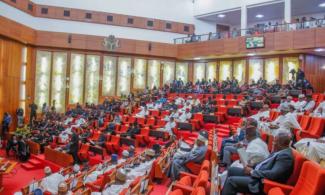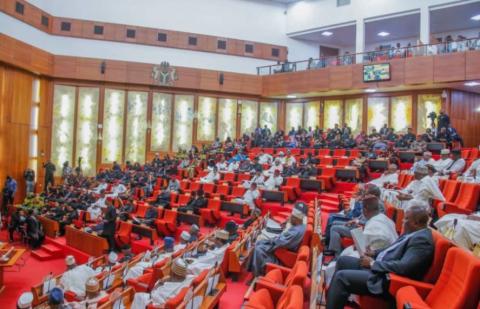
Ningi had while speaking during the week at a meeting of the People’s Democratic Party (PDP) stakeholders from Bauchi Central senatorial zone in Bauchi said the National Assembly had been too soft on national issues without challenging the presidency on wrongdoings to the detriment of good democratic governance.
The Senate on Monday berated a former deputy Senate leader, Abdul Ningi, for alleging that the National Assembly was too soft on President Muhammadu Buhari to the detriment of good governance.
Ningi had while speaking during the week at a meeting of the People’s Democratic Party (PDP) stakeholders from Bauchi Central senatorial zone in Bauchi said the National Assembly had been too soft on national issues without challenging the presidency on wrongdoings to the detriment of good democratic governance.

“This is the first time in the history of the National Assembly where lawmakers are not challenging the presidency despite the numerous challenges facing the country.
“I can’t be a Senator and be silent on national issues, especially at this time when our country is in critical condition of hardship caused by the APC government,” Ningi, who represented Bauchi Central senatorial district in the Senate had said.
He explained that during his time in the National Assembly, lawmakers were able to stand up to the Presidency, citing the instance of the move by the National Assembly to impeach the then President Olusegun Obasanjo shortly before the 2003 general elections.
According to him, this was in spite of the fact that PDP dominated both chambers of the National Assembly at the time, while Obasanjo was elected on the platform of the same party.
Reacting, senate spokesperson, Ajibola Basiru in a statement expressed surprise that such a comment could come from a ranking senator and former principal officer in the upper legislative Chamber.
“The barometer to gauge a working legislature is not how many times it initiated a futile and failed impeachment procedure against a sitting President but the amount of work it could do within the framework of cooperative bi-partisan legislation,” Basiru added.
“The 9th Assembly represents the ever-increasing maturity of Nigeria’s democracy”, he added.
Basiru stressed that the 9th Assembly has been the most successful since the return to civil rule in 1999, adding that “our focus has been on impactful legislations which bother on the economy, security and livelihood of Nigerians.”